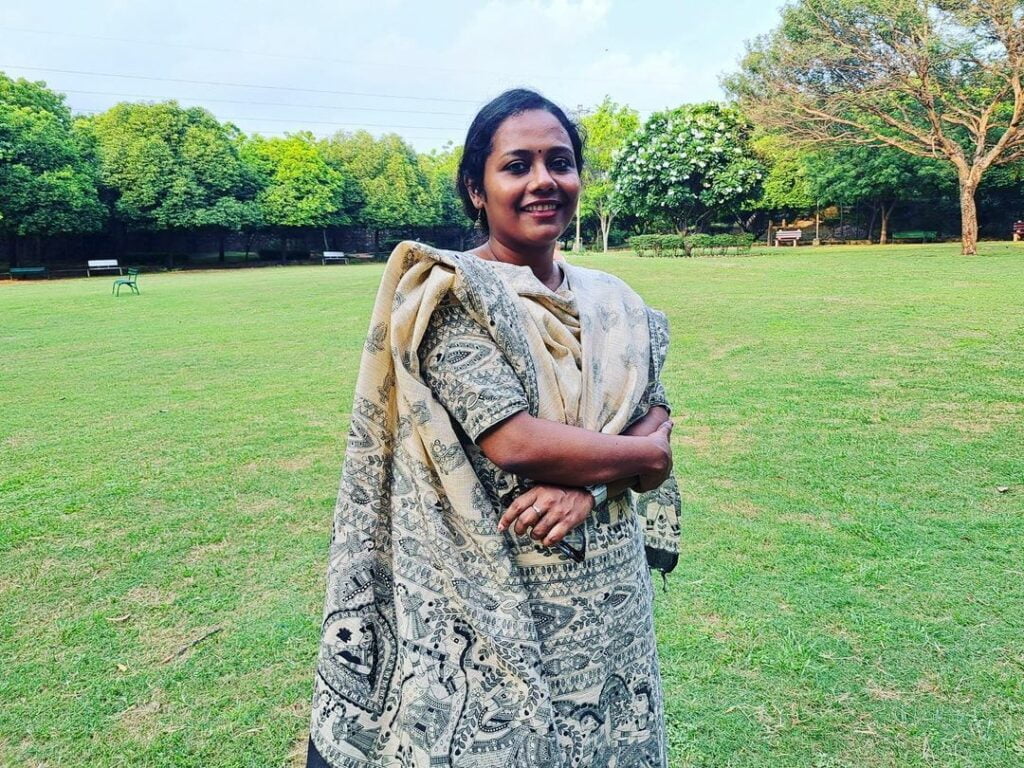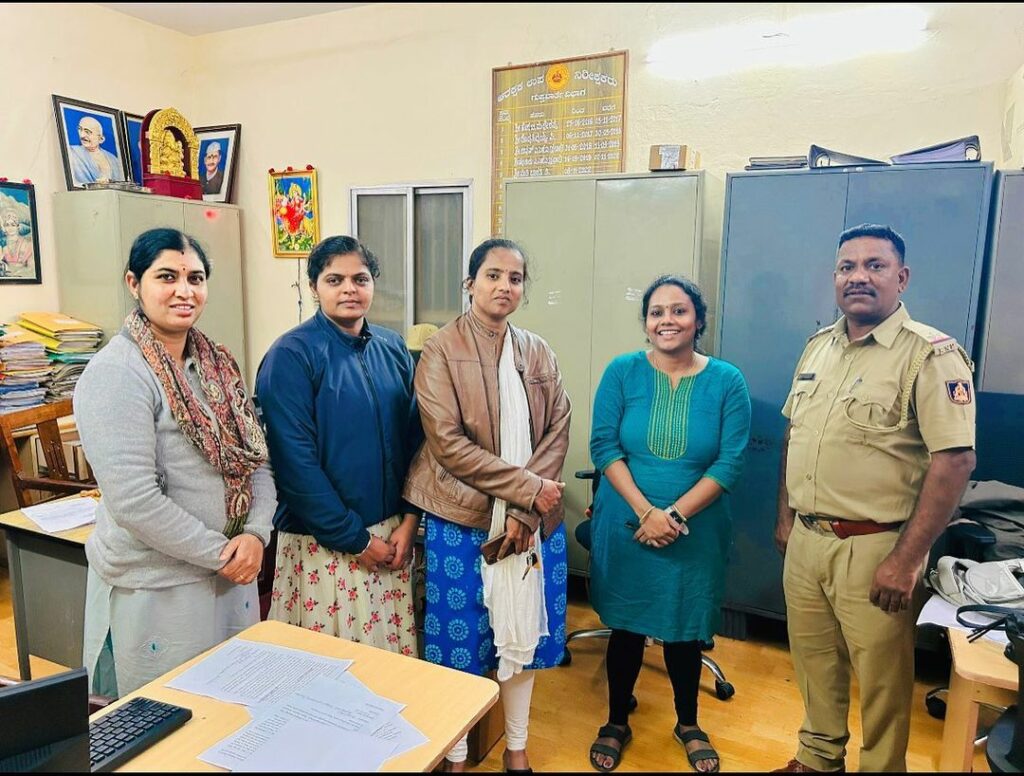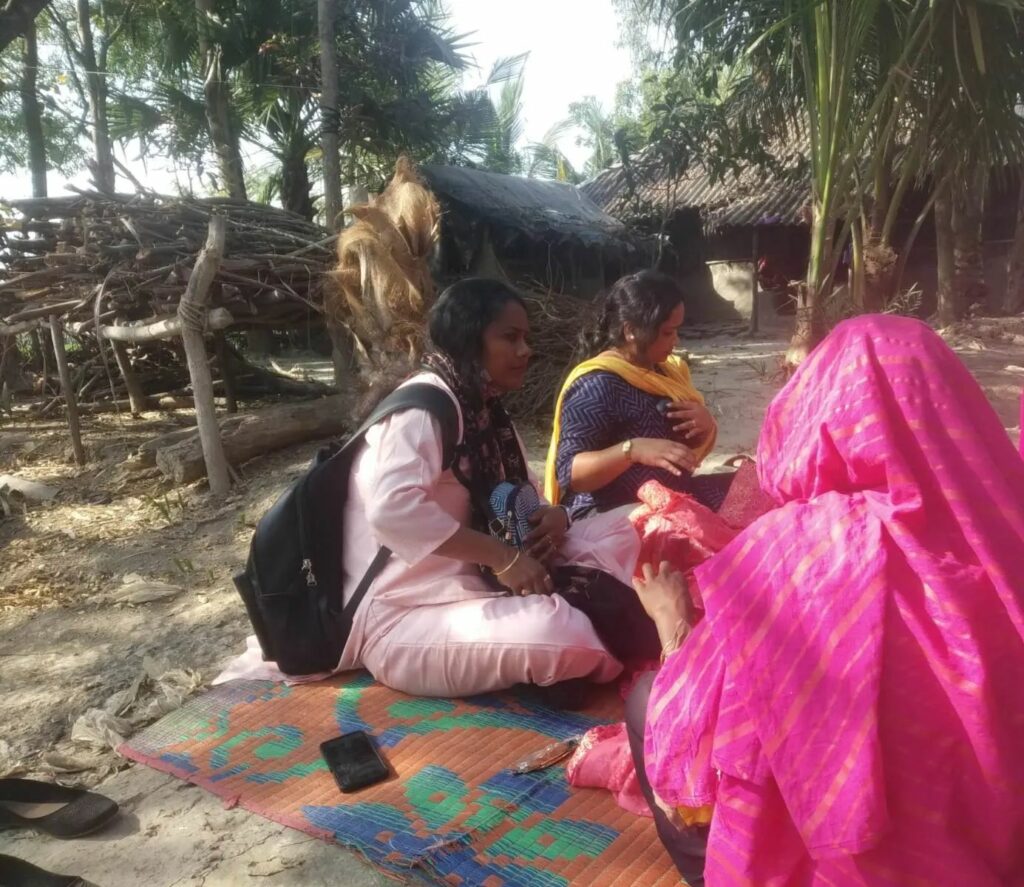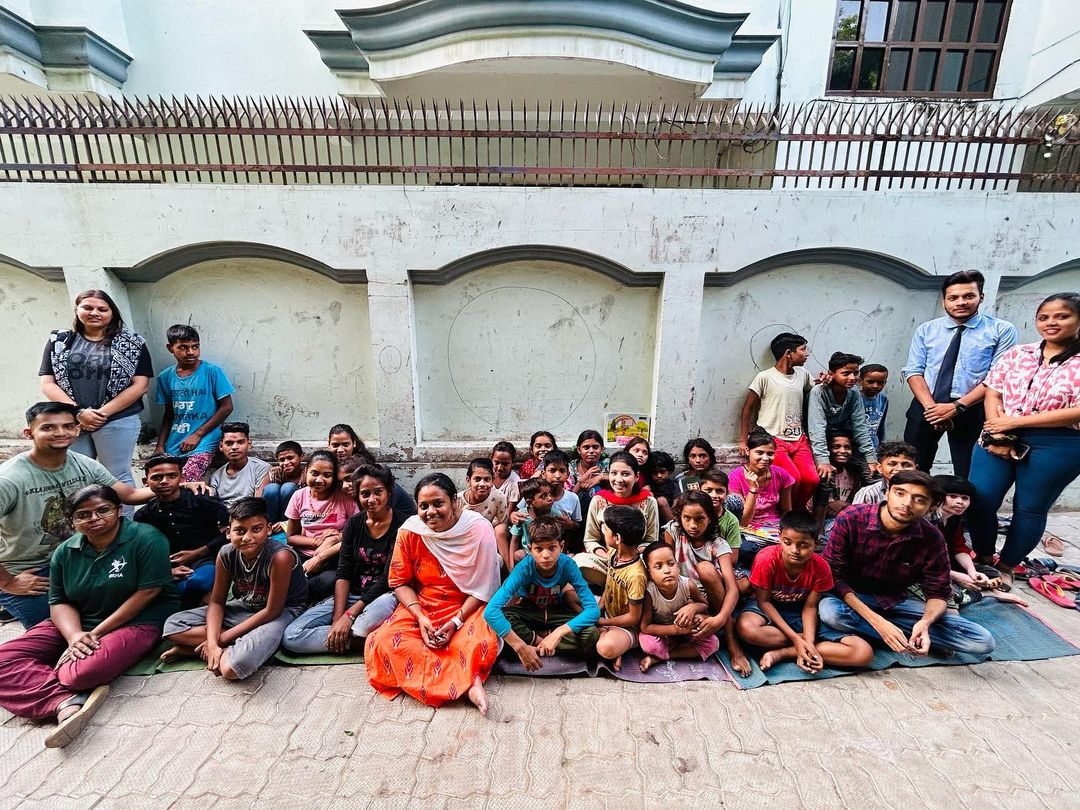Born and raised in Assam’s quaint town of Lumding, Pallabi Ghosh had a childhood quite distinct from the typical narrative of patriarchal norms. She grew up in a liberal environment, where education was prized and friendships transcended gender boundaries.
Even as a young girl, she ventured beyond societal constraints, exploring the railway stations and engaging with diverse people, instilling in her a sense of agency uncommon for many in her position.
‘I had the freedom to explore and take action, even as a young girl in my small town. I could visit railway stations and engage with people. There were no limitations on my movement, even during evenings or dusk,’ Pallabi tells FII. Her upbringing was a testament to the possibility of breaking free from traditional gender roles and expectations.
Pallabi Ghosh and her path to activism
While studying gender studies during her graduation, Ghosh found her calling – combating human trafficking. This path was not one she embarked on lightly, but one that would become her life’s mission. Initially, her involvement was rooted in research, but as the years went by, activism became her driving force.

‘Activism came to my mind after graduation because I realised that there was something I could do about it (trafficking). I could raise awareness, not just in closed rooms or academic circles but openly,’ she reflects.
Her approach was unique – to openly discuss the intricate details of trafficking, even on public platforms like YouTube, challenging societal norms and sparking crucial conversations.
Combating threats and challenges
Unsurprisingly, her bold and candid approach did not go unnoticed. While her openness contributed to creating awareness, it also garnered its fair share of threats and intimidation. Critics questioned her motives, doubting the need for her to share so much information about trafficking.
‘The problem is, not many openly discuss the issue. These topics are usually confined to closed rooms, but I believe in educating people openly,’ she states. Her unwavering commitment to transparency, even at the cost of personal safety, highlights her dedication to eradicating human trafficking.
The fight against trafficking, coupled with constant threats, takes a toll on her mental health. She openly admits to periods of severe depression and burnout, emphasising the importance of self-care.

‘I get burnt out because I’m constantly exposed to negativity – rape, abuse, people being sold. It’s very difficult,’ she acknowledges. To cope, she engages in various activities like walking, playing with dogs, and travelling. Her commitment to the cause sometimes leads her to overwork, a habit she recognises but struggles to break.
Additionally, she talks about the toll her work takes on her physical health. ‘I often contract infections due to the unhygienic conditions where I work and, the lack of proper bathrooms and clean water. While physical challenges are demanding, the toll on my mental health is undeniable. Despite facing these hardships for over a decade, I continue working,’ she reflects.
Rehabilitation and empowerment
‘I focus on grassroots work, not metropolitan cities. My mission takes me to remote areas, border regions, tribal communities, and the people on the streets, including coolies, drivers, and shopkeepers. Trafficking can be found where society often overlooks, and I believe in addressing it at its roots,’ she asserts, highlighting the importance of reaching the most vulnerable.
Beyond advocacy, Ghosh is deeply involved in the rehabilitation of survivors. She understands that rescue alone is not enough; society’s perception must change and the survivors’ economic independence is paramount.
‘Rehabilitation is not just about giving survivors jobs. It’s about empowerment, making them decision-makers and policymakers,’ she asserts. Her mission is to provide survivors with agency and to break the cycle of victimhood.
A call to action
For those of us not directly engaged in activism, she offers valuable advice, ‘Be vigilant. Be alert.’ She stresses the importance of understanding the signs of trafficking and practising caution, especially in the age of social media.
‘Recognising the signs is crucial. Conversations about consent, sex education, and mental health support are vital. The web of issues, from patriarchy to domestic violence, is interconnected, and we must address them collectively. Trafficking doesn’t discriminate; it affects the poor, vulnerable, and even those facing depression or domestic violence. Reach out to someone, share, and seek help—it’s essential,’ she underscores.
‘My point is that fighting trafficking is a collective movement, not limited to activists, researchers, or politicians. It demands unity from the entire nation to combat this organised crime. My sole objective is to educate people,’ the activist stresses.

Pallabi Ghosh has become a beacon of hope for survivors of trafficking. Her homegrown feminism, rooted in transparency and empowerment, guides her tireless efforts to eradicate human trafficking.
As she continues her journey, she calls upon all of us to join the movement, to be vigilant, and to ensure that no one falls prey to the shadows of exploitation and injustice. Her work is a testament to the power of resilience, the importance of dialogue, and the unwavering spirit of feminism in the face of adversity.
About the author(s)
Shivani Menon is an ardent reader and cinephile, who spends most of her time amidst books and the remaining time binging on classic movies. She describes herself with a quote by Sartre, "I exist, that is all and I find it nauseating."




